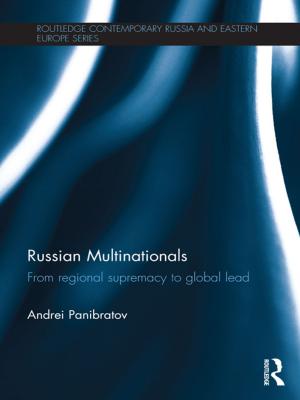| Author: | Anne T. Thayer | ISBN: | 9781351912310 |
| Publisher: | Taylor and Francis | Publication: | July 5, 2017 |
| Imprint: | Routledge | Language: | English |
| Author: | Anne T. Thayer |
| ISBN: | 9781351912310 |
| Publisher: | Taylor and Francis |
| Publication: | July 5, 2017 |
| Imprint: | Routledge |
| Language: | English |
Why did the Reformation take root in some places and not others? Although many factors were involved, the varying character of penitential preaching across Europe in the decades prior to the Reformation was an especially important contributor to the subsequent receptivity of evangelical ideas. In this book, several collections of model sermons are studied to provide an overview of late medieval teaching on penitence. What emerges is a pattern of differing emphases in different geographical locations, with the characteristic emphases of the penitential message in each region suggesting how such teaching prepared the ground for both the appeal and the reputation of Luther's message. People heard and interpreted the new theology using the late medieval penitential understandings and expectations they had been taught. The variety of teaching found in the Church left different regions vulnerable or resistant to evangelical critiques and alternatives. Despite current academic claims that the establishment of the Reformation cannot have resulted from lay religious understanding, this study offers evidence that theological ideas did reach beyond religious elites to promote a degree of popular support for the Reformation.
Why did the Reformation take root in some places and not others? Although many factors were involved, the varying character of penitential preaching across Europe in the decades prior to the Reformation was an especially important contributor to the subsequent receptivity of evangelical ideas. In this book, several collections of model sermons are studied to provide an overview of late medieval teaching on penitence. What emerges is a pattern of differing emphases in different geographical locations, with the characteristic emphases of the penitential message in each region suggesting how such teaching prepared the ground for both the appeal and the reputation of Luther's message. People heard and interpreted the new theology using the late medieval penitential understandings and expectations they had been taught. The variety of teaching found in the Church left different regions vulnerable or resistant to evangelical critiques and alternatives. Despite current academic claims that the establishment of the Reformation cannot have resulted from lay religious understanding, this study offers evidence that theological ideas did reach beyond religious elites to promote a degree of popular support for the Reformation.















